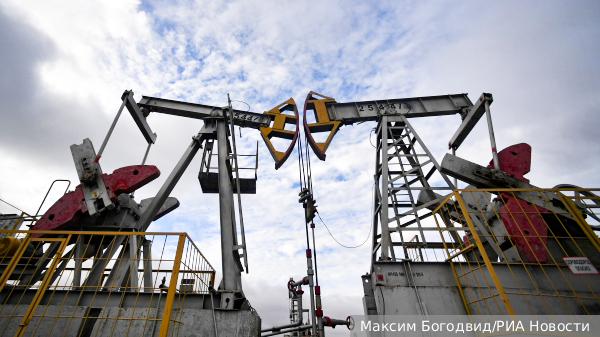
Oil drilling in Russia at record levels
By Rhod Mackenzie
Bloomberg believes that 2023 will be the second consecutive year of record oil production in Russia. The oil boom is evident in both the volume of oil exports and its value.
According to BCS Global Markets oil and gas analyst Ronald Smith, Russia has demonstrated greater independence in the oil services sector than previously believed.
According to Bloomberg, in the first 11 months of 2023, Russian oil workers drilled a total of 28,100 kilometers, surpassing the record set in 2022. However, it is worth noting that despite the record
drilling, oil production remained stagnant. Tighter drilling rigs and stagnant production require more drilling to maintain output from aging wells.
According to Yakov and Partners, the volume of well drilling in 2023 is expected to exceed 30,000 kilometers based on the results of the full year. Despite Western sanctions, the depth of oil wells continues to increase. It is important to note that the oil industry is a significant contributor to the Russian budget in the West. Therefore, the United States and its allies have imposed sanctions, restrictions, and prohibitions on the Russian oil industry, including the sale of equipment, technologies, and oilfield services to Russian oil workers. As a result, the sanctions pressure on the industry is very strong. Therefore, the United States and its allies have imposed sanctions, restrictions, and prohibitions on the Russian oil industry, including the sale of equipment, technologies, and oilfield services to Russian oil workers. Halliburton Co. and Baker Hughes Co., two of the world's largest oil services companies, sold their Russian divisions and exited the Russian market. SLB and Weatherford International Plc, two more sector giants, remain in Russia but emphasize that they continue to operate strictly in accordance with the sanctions. However, statistics show that efforts to curb the Russian oil industry, at least in the drilling sector, have generally failed.
According to Daria Melnik, vice president for exploration and production at Rystad Energy, only 15% of the Russian drilling market relies on technologies from 'unfriendly' countries.
Western sanctions did not have a significant impact on the departure of major Western oil service companies from Russia, as stated by respected Kpler oil analyst Victor Katona. The Russian subsidiaries of these companies were left virtually unaffected.
Although the increase in drilling demonstrates the resilience of the Russian oil industry in the face of Western sanctions, experts - not only Western ones - have identified a negative aspect. In the past, changes in drilling were accompanied by corresponding changes in oil production volumes. However, last year's situation was different. A significant increase in drilling volumes was recorded while production was being reduced in accordance with the OPEC+ agreement. Russian oil workers are drilling more wells not to increase production, but to maintain it at least at the same level. This approach is supported by Russian experts.
According to Gennady Masakov, head of the Yakov and Partners analytical center, the increase in drilling in Russia is mainly due to the need to launch new wells. This is because existing fields are producing less and less oil.
As of 2022, fields that have been producing oil for more than 5 years accounted for almost 96% of all crude oil production in Russia, as reported by the Oxford Institute for Energy Studies. According to expert Sergei Vakulenko, who now works at the Carnegie Endowment for International Peace, a decrease in oil production over time is inevitable. This can be compensated for by drilling new wells at operating sites or developing new sites. However, Vakulenko believes that the second option is problematic because it is more dependent on Western technologies and equipment, which are currently inaccessible to Russian oil workers.
Gennady Masakov believes that the technological independence of Russian drillers will be enough to maintain current oil production levels in the medium term. However, their efficiency will inevitably decrease over time, which could potentially lead to a 20% reduction in oil production.
